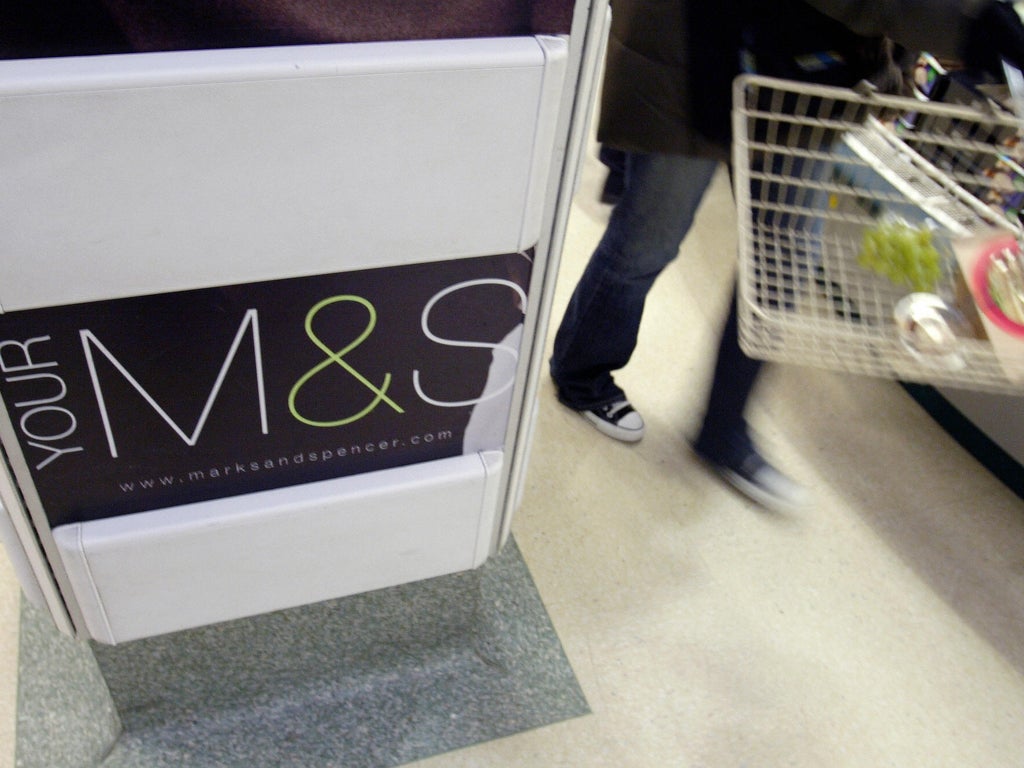Marks & Spencer: Muslim workers refusing to serve alcohol to customers isn’t much of an issue at all
Our employment rights are too important to be reduced to a spurious battle between Muslims and non-Muslims

Your support helps us to tell the story
From reproductive rights to climate change to Big Tech, The Independent is on the ground when the story is developing. Whether it's investigating the financials of Elon Musk's pro-Trump PAC or producing our latest documentary, 'The A Word', which shines a light on the American women fighting for reproductive rights, we know how important it is to parse out the facts from the messaging.
At such a critical moment in US history, we need reporters on the ground. Your donation allows us to keep sending journalists to speak to both sides of the story.
The Independent is trusted by Americans across the entire political spectrum. And unlike many other quality news outlets, we choose not to lock Americans out of our reporting and analysis with paywalls. We believe quality journalism should be available to everyone, paid for by those who can afford it.
Your support makes all the difference.Yesterday, somewhere in Marks & Spencer’s corporate headquarters near Paddington, Christmas was officially cancelled for one poor PR skivvy. The phone must have been ringing off the hook, the boss must have been livid and now it’ll take ages to get everything back to normal. As if last week’s furore over gender-neutral packaging for toys wasn’t enough of a image-management headache, M&S has once again found itself in the cross-hairs of the public's indignant rage.
This time it began after an unnamed M&S customer told The Telegraph of the difficulty she had buying a bottle of champagne from a “lady, who was wearing a headscarf”. There followed a series of newspaper headlines along the lines of “Muslim staff at M&S refuse to serve pork and alcohol” and within a few hours an incident involving one till worker at one branch of one supermarket had somehow come to represent all the evils of multiculturalism in general and Islam in particular.
Not only M&S, but all of Britain’s major supermarket chains were moved to clarify their policy regarding religion at work. A spokesman for M&S said they usually aimed to place workers with religious beliefs regarding the handling of food and drink in suitable roles, i.e. not on the till: "As a secular business we have an inclusive policy that welcomes all religious beliefs, whether across our customer or employee base...We apologise that this policy was not followed in the case reported."
Though you might not guess from all that fuss, the issue of Muslim workers refusing to serve supermarket customers isn’t actually much of an issue at all. In the majority Muslim area which I call home, I’ve never once been refused service at my local supermarket. And my diet consists almost exclusively of bacon and K Cider, especially during Christmas and Ramadan. Even the Telegraph’s champers woman made a point of acknowledging that a) the employee who refused to serve her was “very apologetic” and b) it was far from a regular occurrence. “I was a bit surprised,” she told the reporter. “I’ve never come across that before.”
Predictably, this incident has been gleefully seized upon by some as another herald of #CreepingSharia, but as M&S specifically said, these rarely applied rules are just as (ir)relevant for workers of other religions. “Reasonable adjustments to accommodate” will also be made for Jews who’d prefer not to handle pork or shellfish and Christians who don’t want to work on Sundays. I’d go one further, and say that an accommodating employer who makes an effort to respect their workers’ religious beliefs might also be good for the heathens.
From the Tudor kings who allowed their peasants 12 feast days at Christmas, to the 19th century factory owners who set aside Sunday for church-going, the powerful in Britain have always had a dual attitude when it comes to their charges. In one respect, workers are the souls they are responsible for guiding towards salvation. In another, workers are chattel whose increased labour brings increased wealth. Neither paradigm is particularly beneficial to the little guy, of course, but at least the religious one provides for regular holidays.
Every Christmas we get the clearest illustration of these two approaches to employee holidays in action. On the one hand we’re all supposed to get some approved time off to mark the birth of Christ/see the family/get drunk and have a lie in. On the other, the commercialisation of Christmas brings with it a great opportunity to make money and increased pressure on employees to work longer hours. This is particularly true in service and retail, sectors which now employ a large section of the workforce than ever.
Our employment rights are too important an issue to be reduced to a spurious battle between Muslims and non-Muslims, or religious and atheist. True, some of us like to spend our leisure reflecting on the big spiritual questions of existence and others prefer to waste it in a church or a mosque, but without exception, everyone who has to work for a living can appreciate the value of being treated as more than just cog in the commercial machine.
So M&S has an employment policy that respects the humanity of their individual workers, so sue ‘em. Or better still boycott them, but good luck getting that off the ground in the run up till Christmas. Some of us still haven’t even started shopping yet.
Join our commenting forum
Join thought-provoking conversations, follow other Independent readers and see their replies
Comments